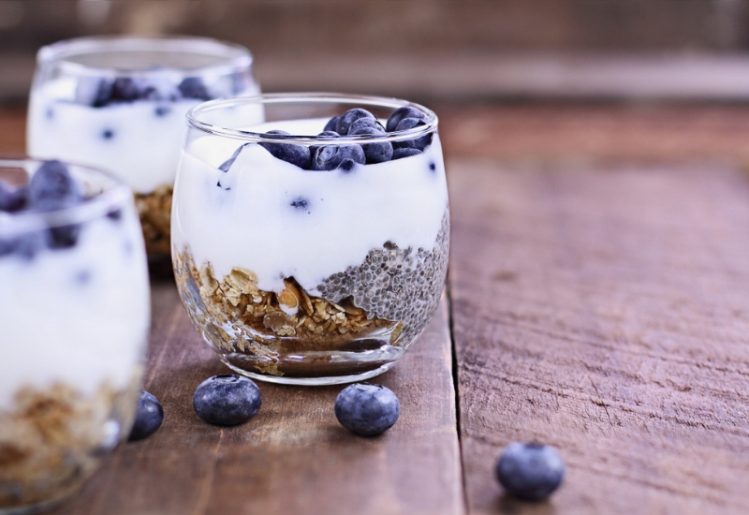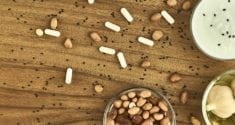New Research Confirms Probiotics Protect the Liver
You may be aware that your body is exposed to bacteria every time you eat something, but what you may not know is that your digestive system relies on some of that bacteria to function. The "good" bacteria that you ingest helps to form the gut microbiome in your gastrointestinal tract. This system relies on a continued supply of bacteria, particularly bacteria that's similar to the microbes already thriving in your system. Bacteria that resemble the bacteria already present in your body is more commonly known as probiotics. In addition to helping the digestive system function more efficiently, new evidence suggests probiotics protect the liver.
Why It's Important to Get Probiotics in Your Diet
 Unfortunately, most of the bacteria we ingest is harmful to us. Additionally, poor diets, which rely on foods high in sugar and trans-fats, encourage the growth of harmful bacteria into the digestive system. This is why it's important to be more conscious of what you eat, and to try to eat foods that are naturally high in probiotics. Foods like kimchi, cheese, yogurt, sauerkraut and other fermented foods are excellent sources of probiotics.
Unfortunately, most of the bacteria we ingest is harmful to us. Additionally, poor diets, which rely on foods high in sugar and trans-fats, encourage the growth of harmful bacteria into the digestive system. This is why it's important to be more conscious of what you eat, and to try to eat foods that are naturally high in probiotics. Foods like kimchi, cheese, yogurt, sauerkraut and other fermented foods are excellent sources of probiotics.
What can probiotics do for you? Their primary function is to improve the balance of bacteria in the gut microbiome. Since probiotics are good bacteria, ingesting foods rich in these microorganisms will help ensure you have enough good bacteria to balance the bad. Maintaining this balance is helpful in preventing or minimizing diarrhea, especially when it has been caused by taking antibiotic medications. In fact, a recent study found that diarrhea linked to antibiotics was reduced by 42 percent, while diarrhea instigated by other infections was decreased by 25 hours when exposed to probiotics.
There's also evidence that probiotics can improve certain types of mental illness. Depressive episodes, anxiety, autism and obsessive-compulsive disorder have all been improved through the regular consumption of probiotics. In some cases, memory has also been improved, suggesting probiotics may help to boost cognitive functioning. Additionally, heart health, skin allergies, immunity and obesity have all benefited with regular exposure to probiotics.
New Study Finds Probiotics Protect the Liver
A newer study has found that probiotics are also beneficial to liver health. The recent study involved administering the common probiotic LGG, or lactobacillus rhamnosus GG, to mice over a two-week period. After the level of LGG had been built up in the rodents, they were given heavy doses of acetaminophen, which has been shown to cause liver damage. The drug can also cause death by boosting levels of free radicals in the body, resulting in high levels of oxidative stress.
However, the researchers found that in the mice, the probiotics helped protect liver functioning. While the mice in the control group, which did not receive doses of probiotics, did suffer liver damage, the mice in the test group were not as seriously affected. The probiotics seemed to help protect their livers so that the acetaminophen affected their livers to a lesser degree. According to the study's authors, the probiotics provided the liver with the antioxidants necessary to fight off the oxidative stress.
This is an important finding, because the liver is responsible for removing toxins from the blood, while also turning food into energy for cell functioning. By protecting the liver against the damage caused by certain medications, probiotics ensure that the entire gastrointestinal system stays healthy. Additionally, the probiotic LGG has been found to protect against liver damage caused by alcohol consumption. This particular probiotic can also guard against the development of fatty liver disease which is not caused by alcohol consumption. Findings that confirm probiotics protect the liver suggest that a healthy gut microbiome benefits other parts of the body -- not just the gastrointestinal tract.
What Can You Do to Build a Strong Gut Microbiome?
This new research suggests that your overall health can be protected, or improved, by enhancing your gut microbiome. This can be done with just a few dietary changes that may even enhance your eating experience.
Eat a More Diverse Diet
The typical diet in the Western world is very limited, relying on foods derived from just a few sources. However, eating a broader range of foods, which includes more fruits, vegetables, seeds and nuts, will introduce a broader range of bacteria into your gut microbiome. The more bacteria you introduce into your system, the stronger your gut microbiome will become.
Avoid Artificial Sweeteners
 Often, people turn to artificial sweeteners, including Aspartame, as a means of controlling their blood sugar levels. However, recent studies have found that artificial sweeteners may be just as bad for you in this regard as regular sugar. While they may help limit weight gain, artificial sweeteners still cause a spike in blood glucose levels and also inhibits insulin production.
Often, people turn to artificial sweeteners, including Aspartame, as a means of controlling their blood sugar levels. However, recent studies have found that artificial sweeteners may be just as bad for you in this regard as regular sugar. While they may help limit weight gain, artificial sweeteners still cause a spike in blood glucose levels and also inhibits insulin production.
Eat Prebiotic Foods
Prebiotic foods are foods that encourage the growth of healthy bacteria in the gut after they have been consumed. These are foods that are harder to digest, including fiber and complex carbohydrates. Resistant starches, fruits and vegetables and whole grains all contain prebiotics. By consuming foods rich in prebiotics, you can reduce the risks of developing diabetes, heart disease and obesity.
Considering the vast benefits that probiotics supply, many people are also turning to supplements. In addition to making these dietary changes, taking a high-quality probiotic supplement can help you enhance the health of your gut microbiome. As recent research suggests, this will help you experience better digestive health, boost liver health and strengthen protection to systems throughout your body.




